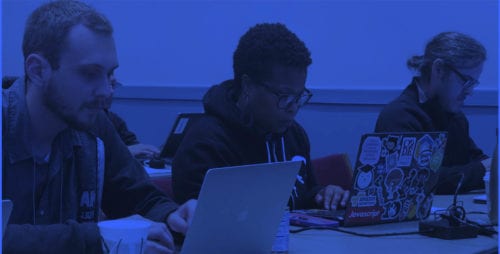Estimated reading time: 3 minutes
June 17, 2020
InCommon will offer the third Collaboration Success Program (CSP) this fall, with expressions of interest due July 31, 2020. Through the CSP, organizations solve common identity-related challenges using the community-developed, standards-based software and services that comprise the InCommon Trusted Access Platform. The program offers training, consulting with experts, and peer collaboration.
One CSP participant writes: “I appreciate access to the collective intelligence and experience of the community. You can’t buy that from a vendor.”
Lacey Vickery of UNC Charlotte described the university’s interest in the program.
“Currently UNC Charlotte has a mixture of open source InCommon products, like Shibboleth, and closed source vendor software,” she said. “While this approach has worked for us so far, our long-term goal of incorporating more components of the InCommon Trusted Access Platform will help standardize on a set of IAM tools developed specifically for higher education. Hopefully this will provide a common set of products and terminology to make integration with other institutions in the UNC system more seamless.”
Earlier this year, six universities completed the most recent CSP. Here is a quick summary of the problems explored and solved by some of the participants.
Southern Methodist University uses a home-grown PeopleSoft customization, developed in 2009, for account provisioning. The system no longer addresses many of the objectives for the university’s identity and access management program. During the CSP program, SMU developed a reference architecture based on that used by the InCommon Trusted Access Platform, and determined that this community-built open source software would help meet their objectives. The university is in the final stage of software selection and deployment scheduling.
The University of Louisiana-Lafayette’s provisioning process relies on a set of home-grown scripts, which are highly dependent on a single individual for modifications and maintenance. Deprovisioning, and re-provisioning returning users are trouble spots. The university used the CSP program to explore midPoint for provisioning and set up a test system. Unfortunately, the COVID-19 virus hit before the service could move to production.
The University of North Carolina at Chapel Hill needed an extensible provisioning engine for use with an array of resource targets, and needed to provision the Google Suite and Google Cloud Platform for campus groups. The group chose midPoint and moved the software into production as their provisioning engine for their Google solutions.
The University of North Carolina at Charlotte was interested in an enterprise-ready system for access management. They developed a test instance that involved making changes to their Shibboleth instance, setting up midPoint to pull information from Banner, and populating a source database for Grouper. Because of code freezes implemented as a result of COVID-19, the test system has not been moved to production.
Interested? Complete the expression of interest form (which is in Survey Monkey). It’s not a firm commitment, but an opportunity to outline your possible intent and objectives, and meet with InCommon staff members to see if the program is right for you.
The third CSP cohort will form during the month of August, with work starting in September. You can see the details on the InCommon website, or email training@incommon.org if you have questions.

